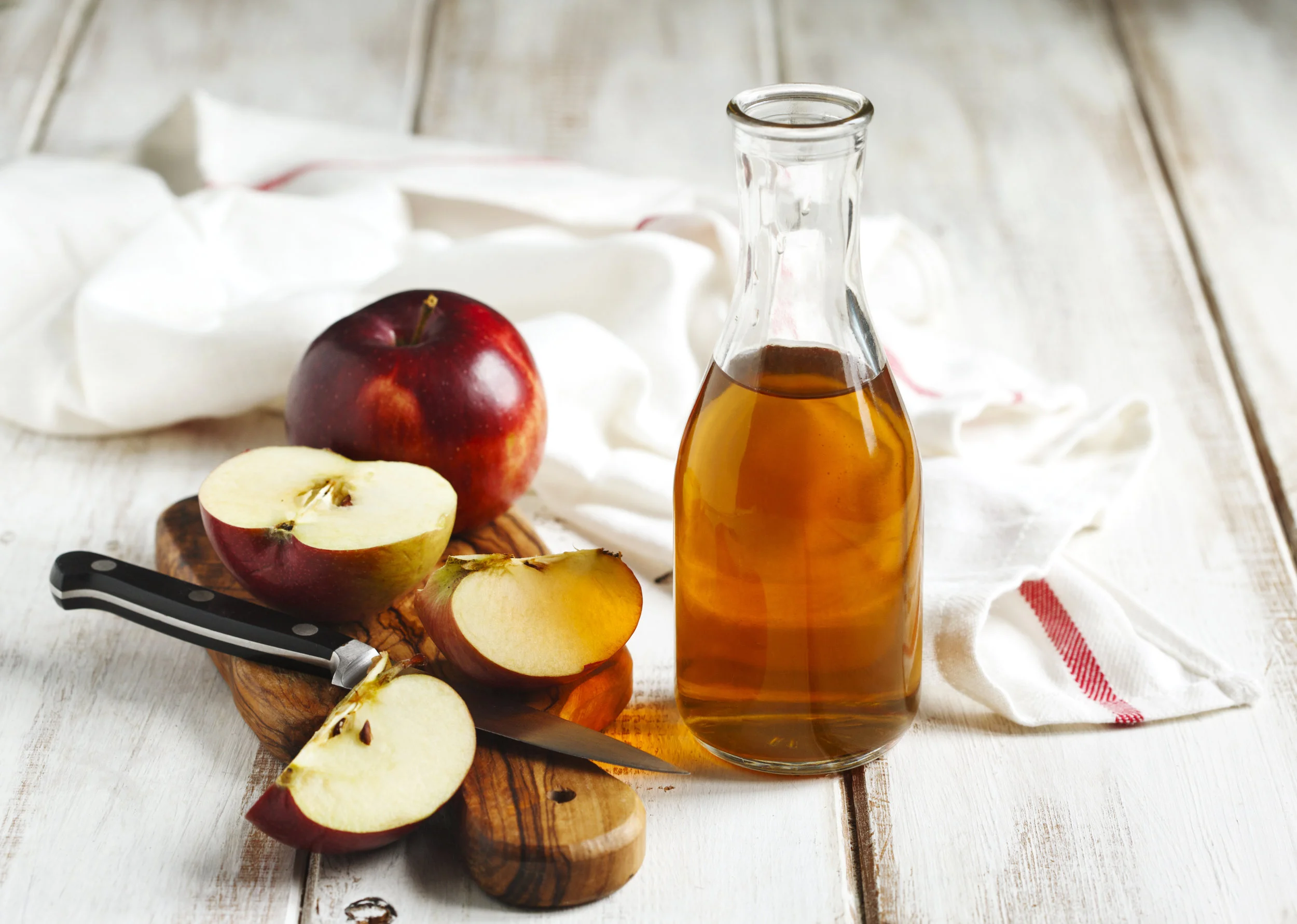Does Apple Cider Vinegar Live Up to the Hype?
Does Apple Cider Vinegar Live up to the Hype?
Apple cider vinegar (ACV) is touted for many healthful benefits of alkalizer, digestive aid, detoxifier, weight loss aid, hair beautifier, and more. While it can be beneficial for many, it’s not the cure-all and may even be making things worse for some folks. We often do recommend it for some people, but not for everyone and for everything.
What is apple cider vinegar?
Since ancient times vinegar had been made using partially filled containers of wine or other alcoholic liquids to sour. This process was unpredictable in time and results. Over the centuries, the vinegar making process was refined and since the 19th century can be made in a matter of a couple of days. You need an alcoholic liquid, oxygen, and bacteria. These bacteria are specific to being able to use the alcohol as an energy source and have acetic acid as the by-product. After the fermentation process, most vinegars are pasteurized to kill remaining bacteria and aged for a few months to develop their flavor, in part to the acetic acid. Cider vinegar is made from yeast-fermented apple juice, turning the juice into alcohol and then the bacteria are added to get the acetic acid. The cloudiness you see in a cider vinegar bottle is a tannin-rich pulp that is unique to the apple cider and isn’t considered as a “mother” like other vinegars or fermented liquids.
What makes ACV healthy?
In the fermentation process, it produces acetic acid which is what allows the vinegar to be used as a preservative and inhibit the growth of many microbes. In Babylonian times they added vinegar to water to make it safe to drink. Research shows that even a 50% dilution of ACV will kill Candida, and even further dilutions will knock out strains of E.Coli and Staphylococcus aureus.
The tannins also provide for anti-microbial and anti-yeast activity. Tannins also may also have a role in regulating blood pressure, blood fat, and clotting factors.
The weight loss claims of taking regular ACV are likely because of the vinegar's role of reducing non-benenficial bacteria that can alter the way we extract energy from foods and lead to weight gain.
When would ACV NOT be helpful?
Some people are sensitive to tannins and tyramines. Tyramines are also produced naturally in the aging and fermentation process. Both of these can be migraine triggers for individuals. Tyramines in some that have some genetic differences in how they process them in the gut (MAO gene) can alter the way it affects blood pressure, serotonin, and dopamine. Serotonin and dopamine as you know are neurotransmitters that regulate mood.
If you are taking an MAO-I drug, you may not break down the tyramines causing them to build up in the blood and increase blood pressure and alter your neurotransmitters.
Though ACV can be used to support digestion or kill bacteria there are some gut infections or dysbiosis that is more severe and needs more support than ACV. Others use ACV to aid in chronic yeast infections, but these frequent reoccurring infections usually involve more than just the vaginal immune system and typically need a whole gut rebalancing overhaul.
All in all, for many, ACV can be beneficial for a variety of remedies but be aware if you are having reactions to foods that are aged, you're on certain medications, have chronic infections, or may have a larger gut dysbiosis issue that needs further investigation and advanced support to get your gut back in balance.
Lab testing is the easiest way to get a clear picture of your gut health. Following a professional protocol can be the most efficient use of your time and energy.
Main Sources:
McGee, Harold. On Food and Cooking: The Science and Lore of the Kitchen (Kindle Locations 20702-20791). Simon & Schuster UK. Kindle Edition.https://www.tandfonline.com/doi/abs/10.1080/10408699891274273https://www.mc.vanderbilt.edu/documents/neurology/files/Tyramine%20Menu%20Book%2006227101.pdfhttps://www.ncbi.nlm.nih.gov/pubmed/29379012


